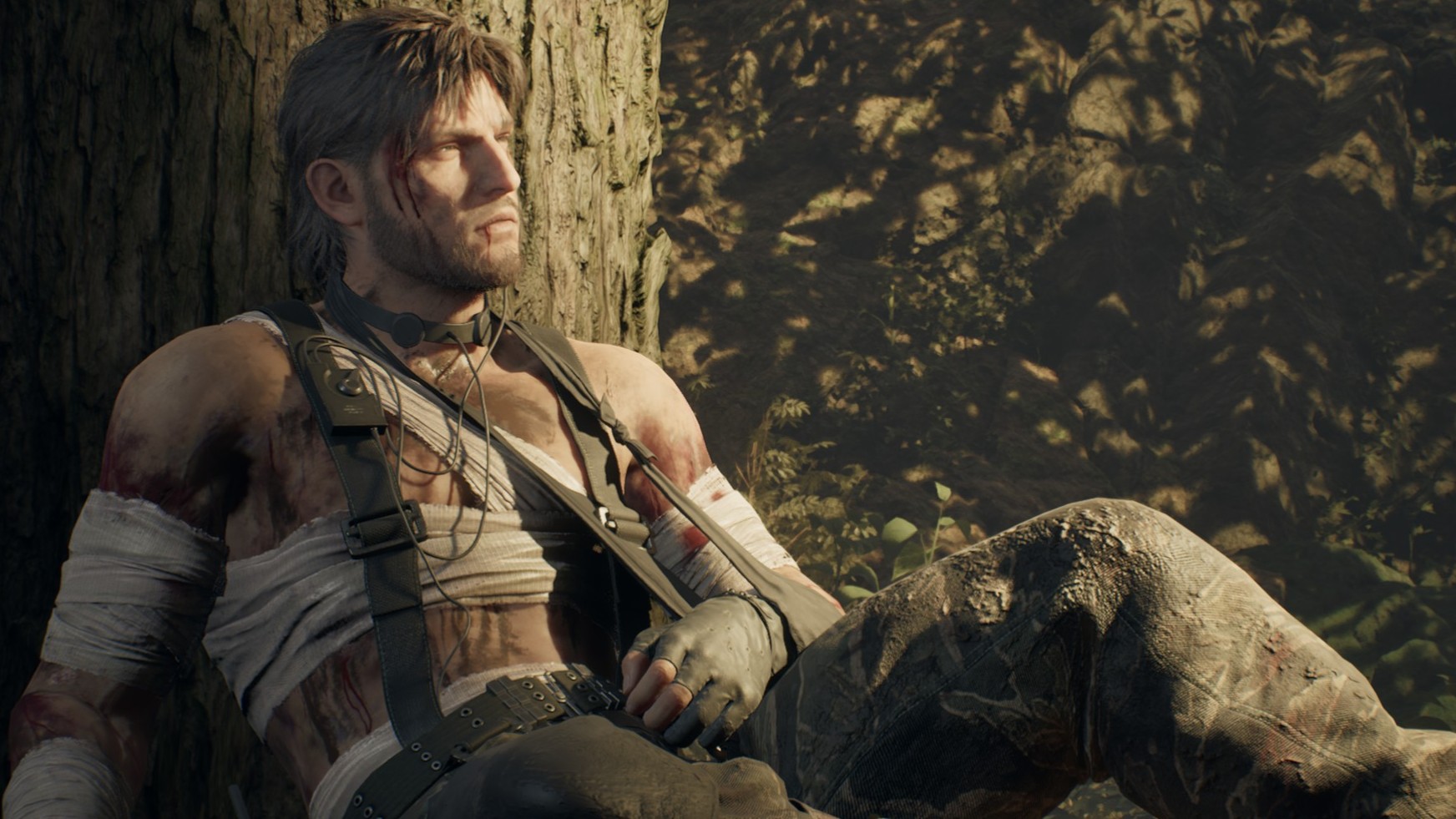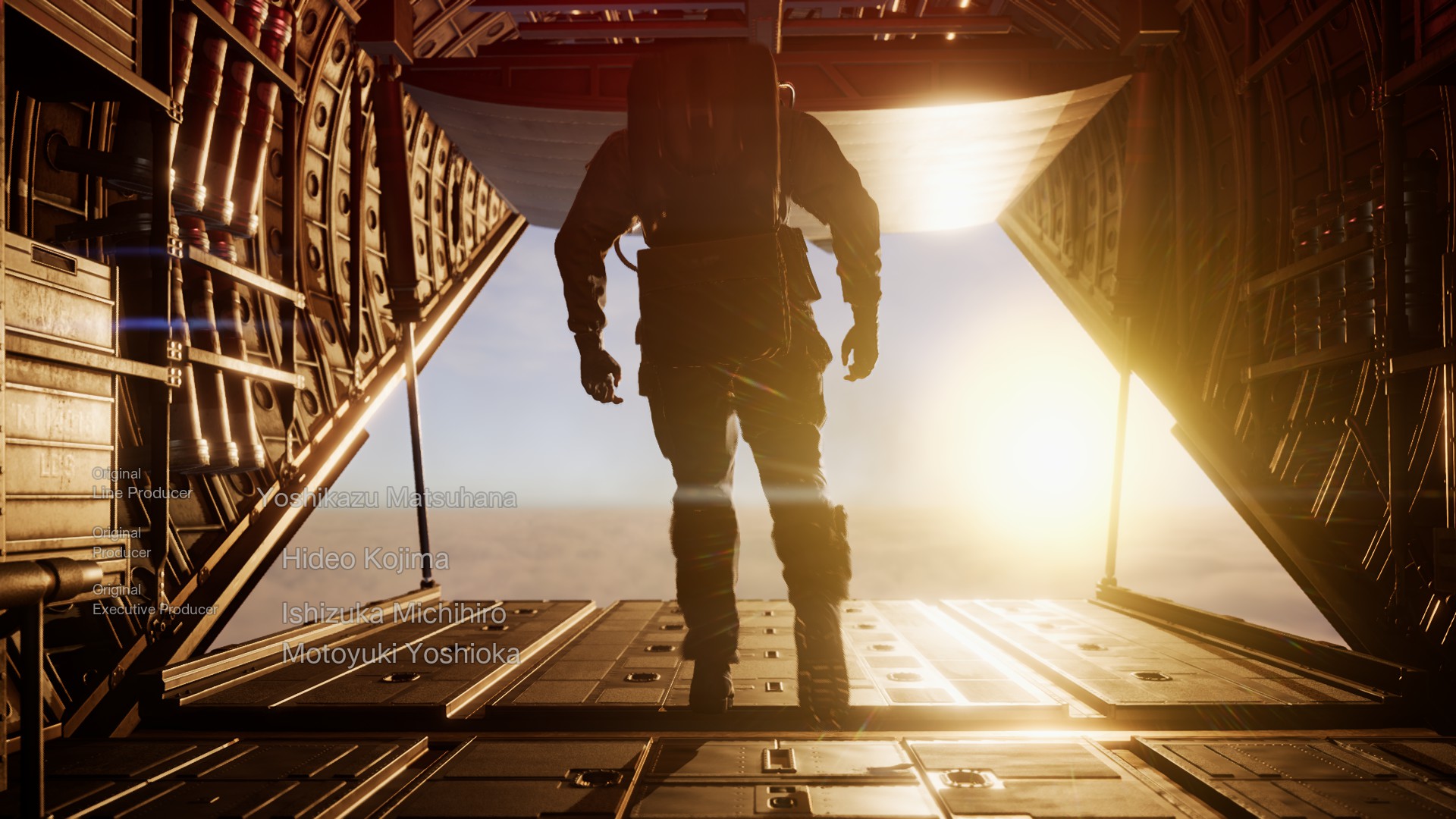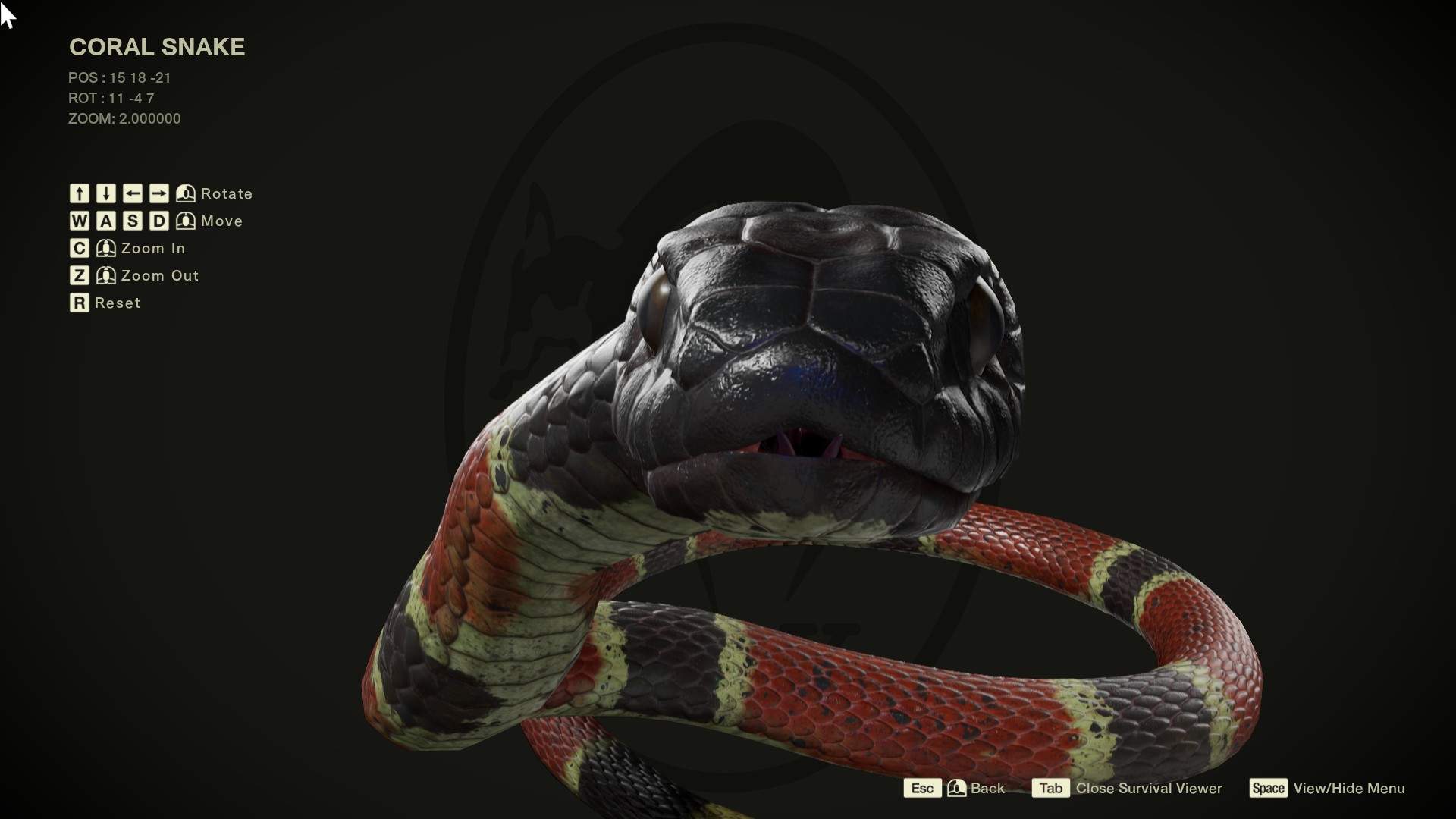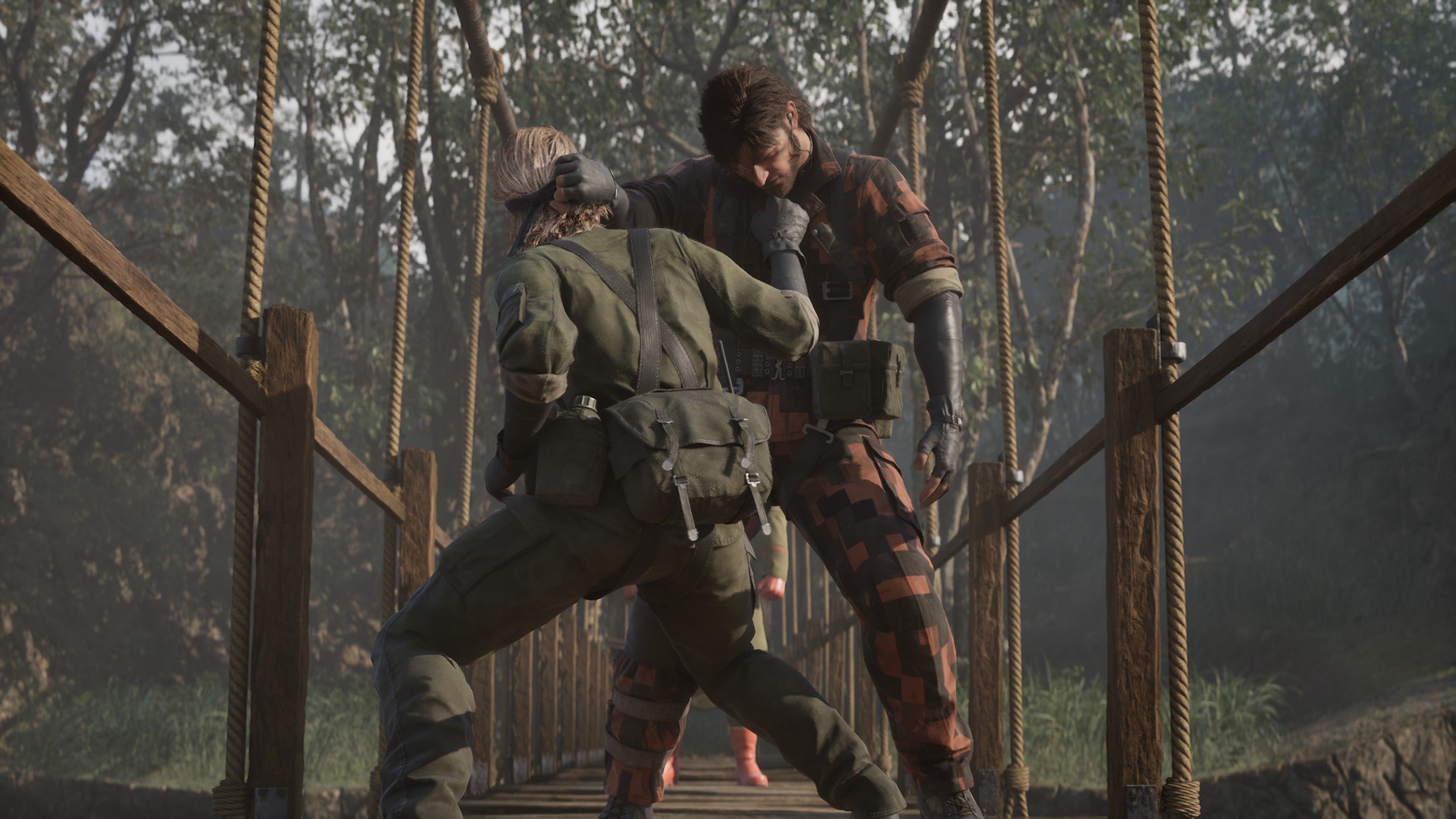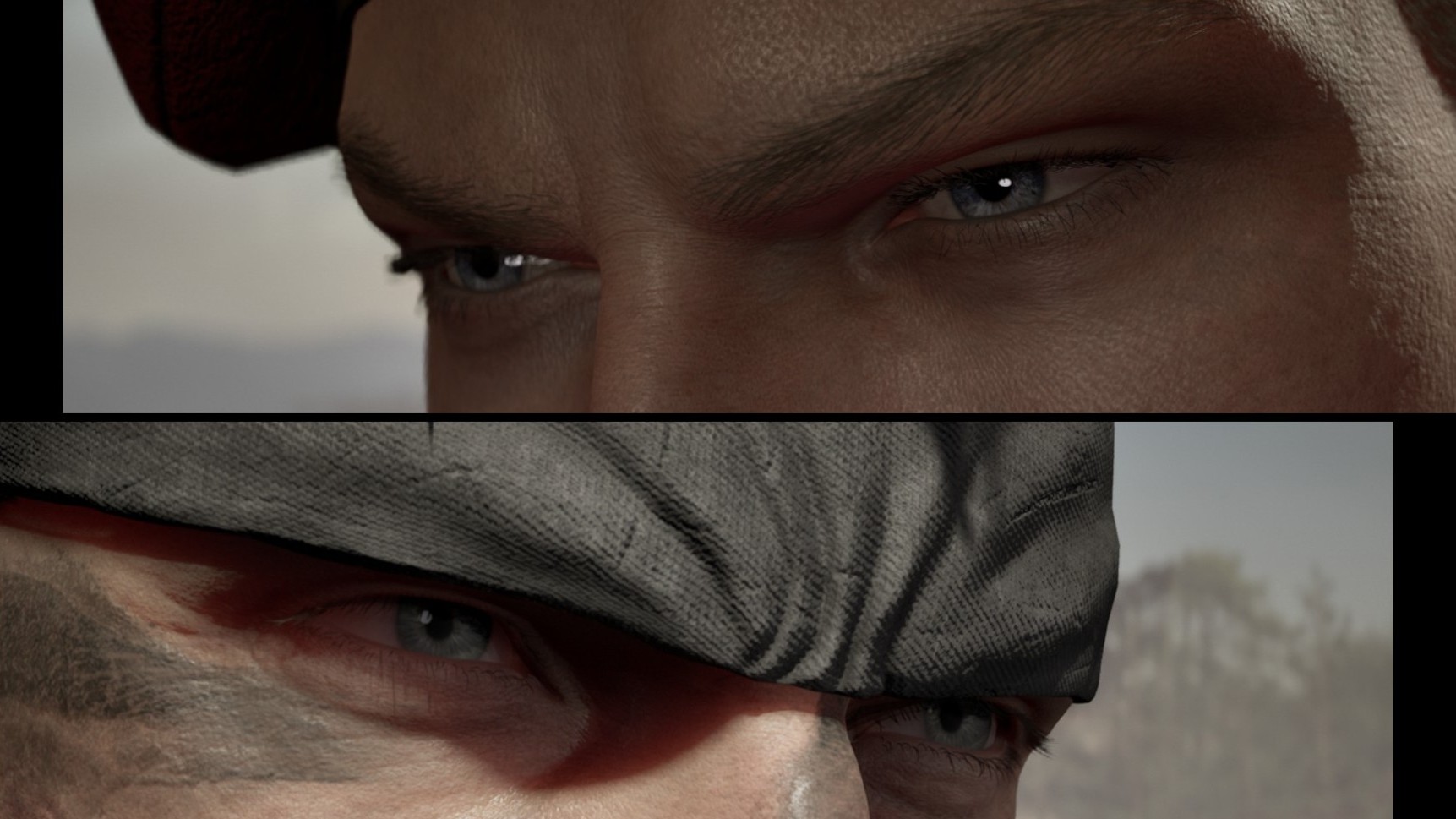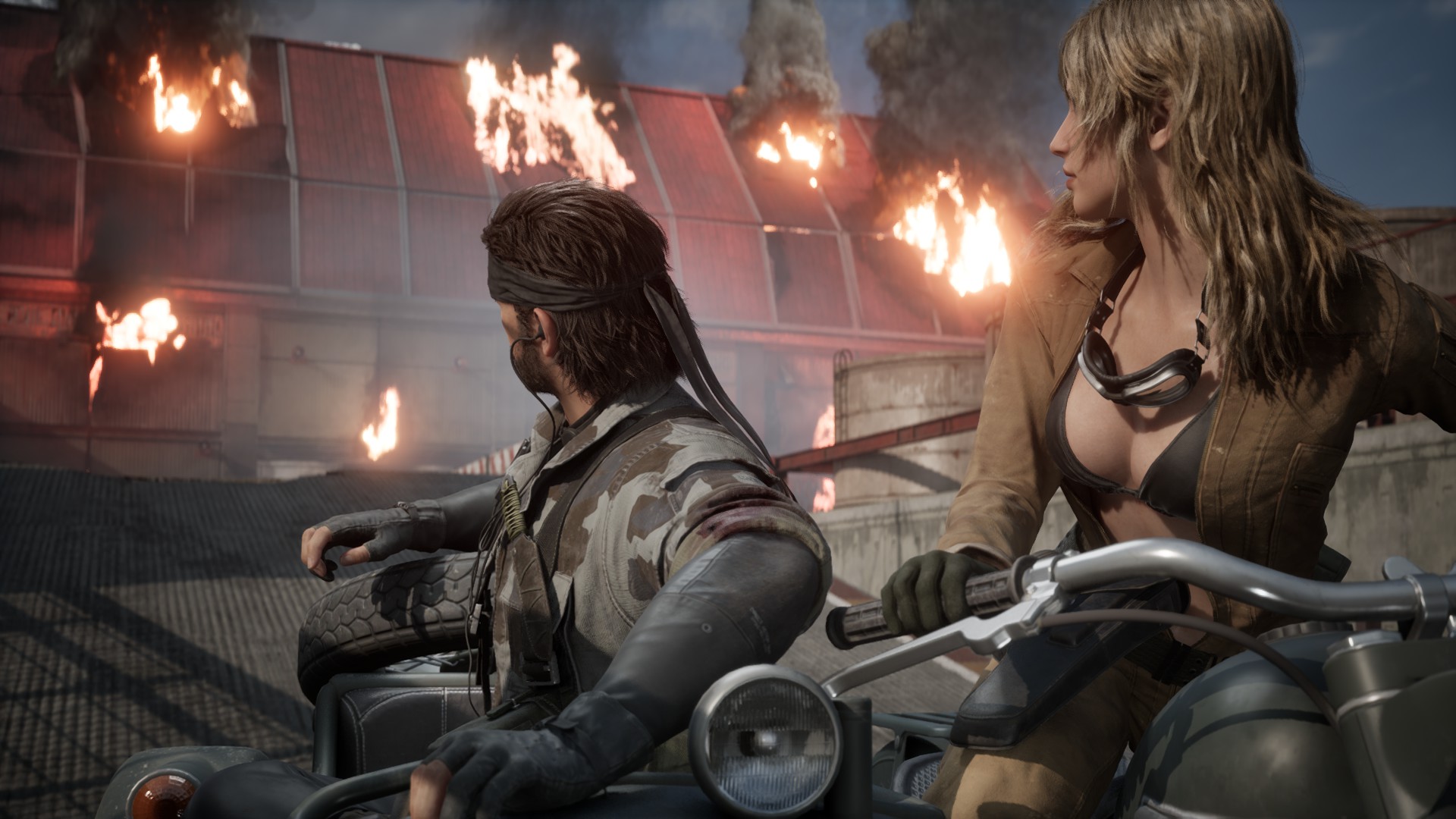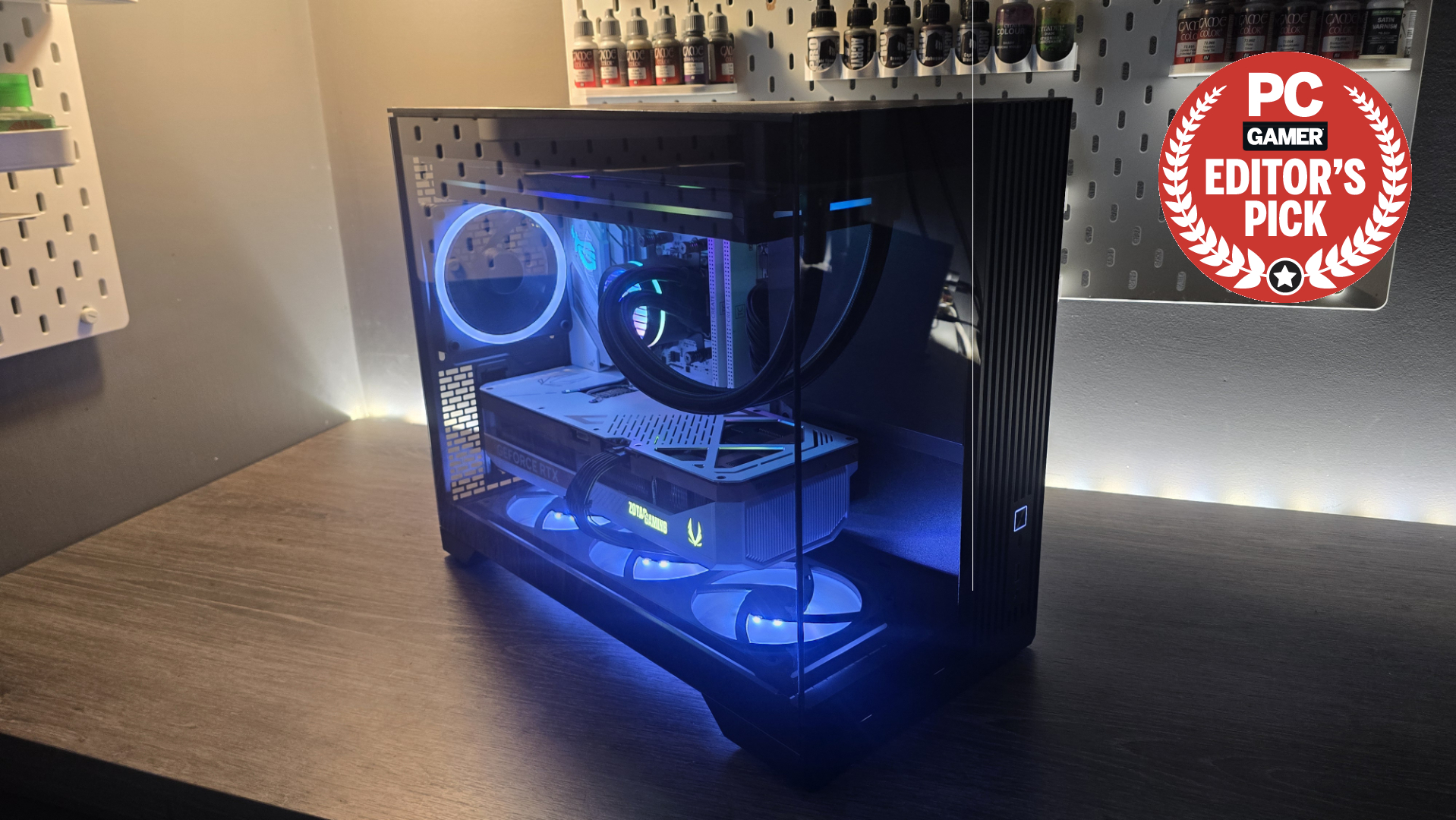Our Verdict
A gorgeous remake of a true classic that could, and maybe should, have tried to do a tiny bit more.
PC Gamer's got your back
From the moment you load up Metal Gear Solid Delta to when the credits roll, Hideo Kojima hangs over the production like The Sorrow, a long-dead member of the villainous Cobra unit who somehow still turns up for a boss fight. The Sorrow's emotion, the game takes pains to point out, is sadness. The melancholy of lost camaraderie, and the scars of the battlefield that never leave. Yet the character is actually presented as a prankster, popping up in cutscenes with a smile and a jape. Like a jilted lover, The Sorrow's defining characteristic is much simpler: he just can't let go.
What is it? A ground-up remake of Metal Gear Solid 3: Snake Eater, widely considered the best game in the series.
Expect to pay: $70 / £70
Developer: Konami
Publisher: Konami
Reviewed on: Windows 11, Intel i5-12400, RTX 4060, 16GB RAM
Multiplayer? Yes, but it's arriving as a post-launch update.
Link: Official site
Metal Gear Solid Delta has been a long time coming and, you'd think, has been the subject of some truly tortuous soul-searching at Konami HQ. Metal Gear remains the company's biggest series yet one that, until 2023's Master Collection, it seemed scared to touch, let alone move forward.
Delta's inspiration is obvious: Capcom has made a fortune with its excellent Resident Evil remakes, simultaneously paying homage while making them feel new again. But where Capcom's remakes are bold and in some cases brutal (such as taking a scalpel to many of Resi 4's wilder moments), Metal Gear Solid Delta is utterly faithful, even devoted. The opening cutscene plays out with the original credits intact. Every time something happened in Metal Gear Solid 3: Snake Eater, it happens again in Metal Gear Solid Delta: Snake Eater.
It looks a hell of a lot better, of course, but most of us really have been here before.
We've been US special forces operative Naked Snake, airdropped into a jungle in Soviet territory. We've gone on Snake's initial mission to extract Nikolai Sokolov, an alt-history version of Sergei Korolev, before things spiral into an existential battle against his mentor the Boss, her Cobra unit of elite (and very odd) soldiers, and the doomsday weapon Sokolov has been forced to build.
Metal Gear Solid 3 is by some distance the most straightforward and self-contained story in the series: positively restrained next to the wild digressions of MGS2 and Bacchanal excess of MGS4. There's a reason that this is the one Metal Gear game everyone likes. Even when characters start wanging on about the Philosopher's Legacy and going on digressions that would put a Bond villain to shame, Snake's master-student dynamic with the Boss is kept front-and-centre.
That's the strange thing about Metal Gear. I can get as high-falutin' about this game's narrative as you like, but the first time I realised I was really enjoying Delta was when I got dumped in a cave, could barely see, and proceeded to crawl around while stabbing half a dozen crabs. Snake was hungry, the crabs tasted good, and I was waiting for my in-game eyes to adjust to the darkness.
Keep up to date with the most important stories and the best deals, as picked by the PC Gamer team.
The first few hours are underwhelming. This game looks absolutely spectacular, but after the intro you go through a few sparsely populated locations, listen to a lot of codec calls, and it all feels… rather small, somehow. Again and again throughout Delta I wished Konami did a little more, had more ambition in how it approached this remake, but as I played I became reconciled to the faithful nature of the project. Take Snake's eyes adjusting in the darkness: It's one detail among a thousand that, even if you've played the original game multiple times, somehow delights again.
Step on the grass!
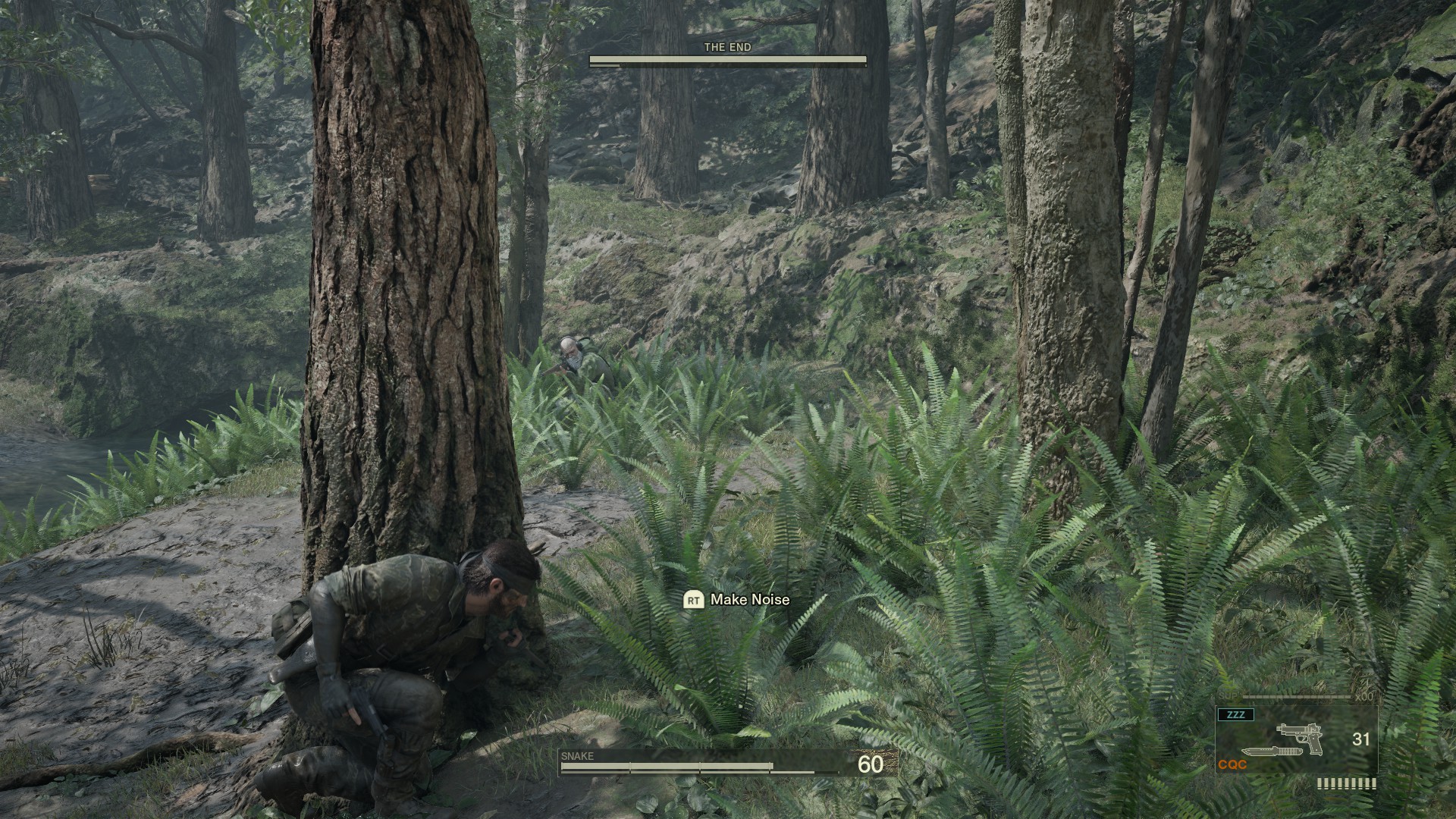
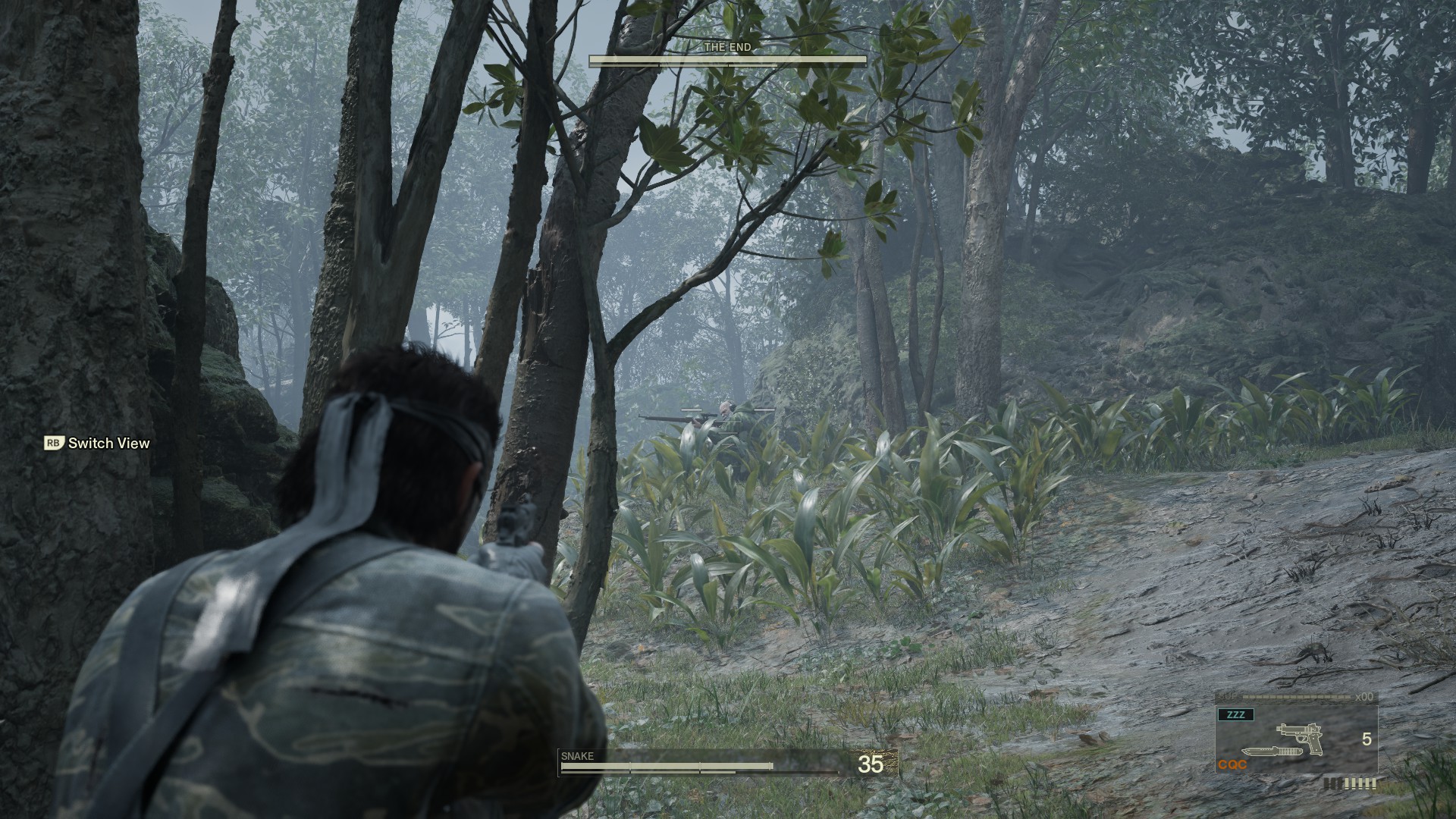
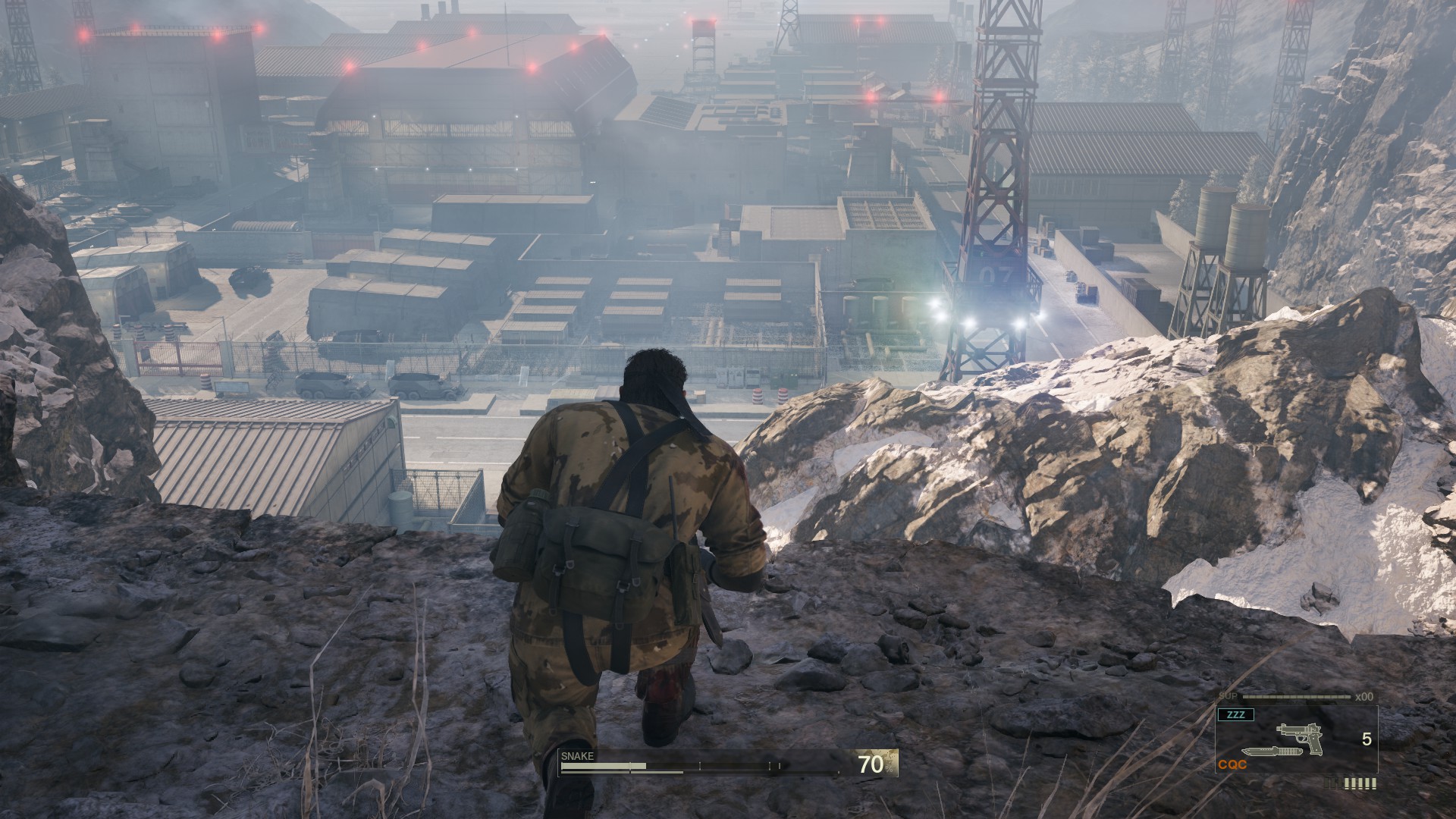
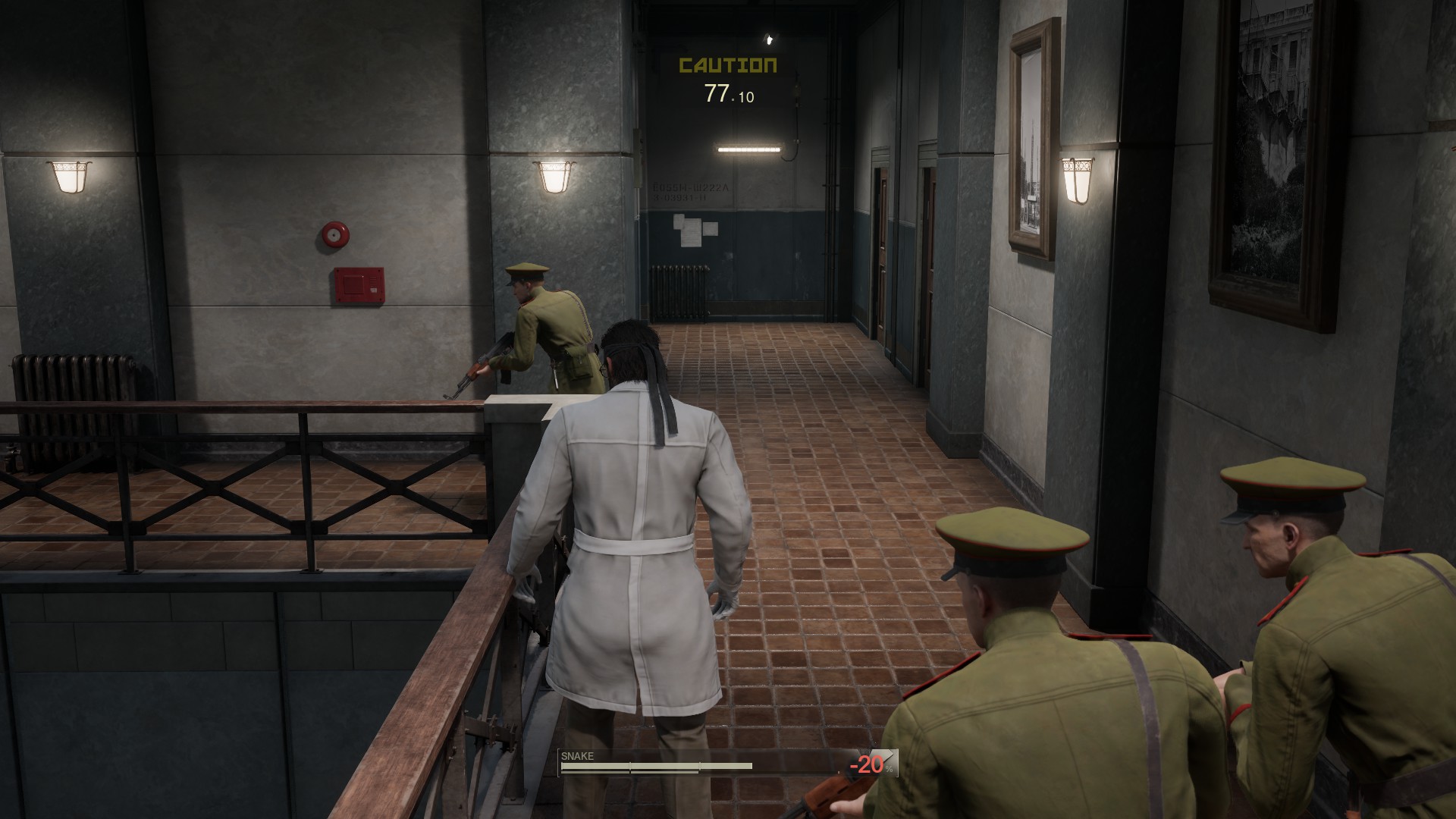
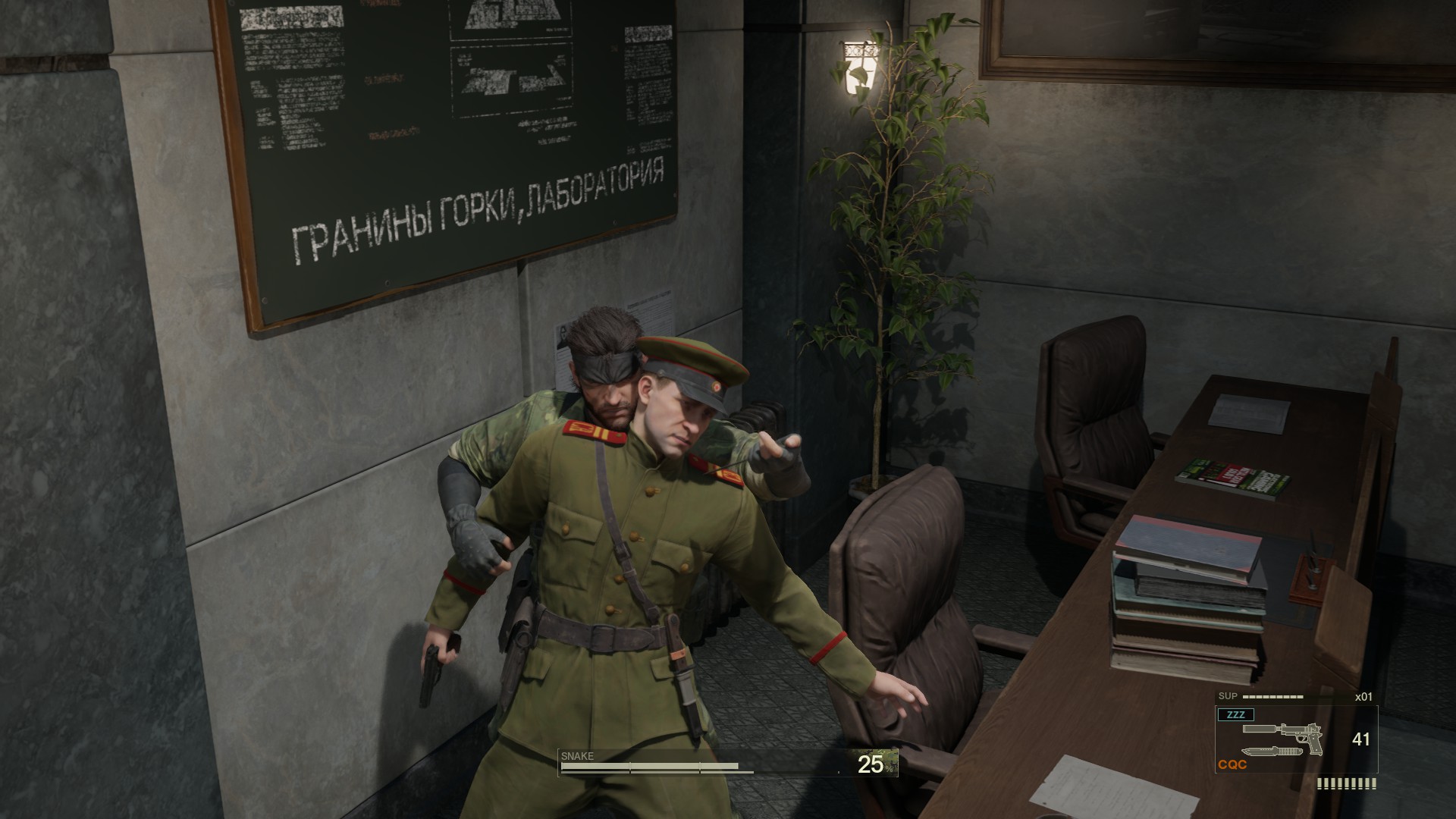
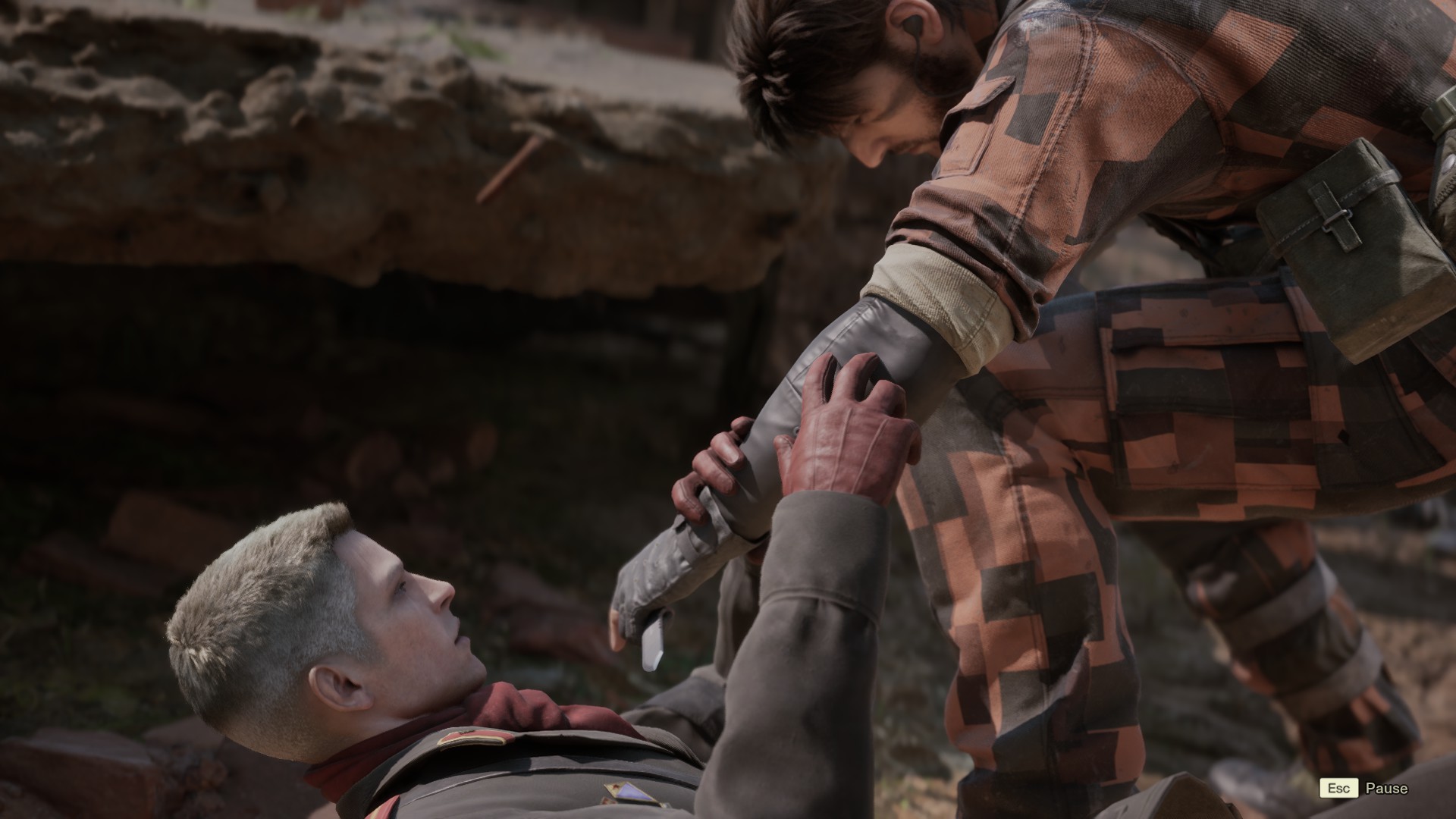
I spent the opening feeling that these environments were too trammeled, and then re-discovered the depth
I spent the opening feeling that these environments were too trammeled, and then re-discovered the depth. I began throwing live snakes at guards for a laugh, leaving saucy magazines out in the open, and religiously wearing a crocodile hat every time I went in the water. I stopped sprinting through these extravagantly lush corridors and started luxuriating in them, as the joy of the jungle's endless options washed over me once more.
A special word for the grass. You spend a lot of time in the grass in this game, and it is yet another visual triumph for Delta: not just the way the blades shift individually and respond to movement, both animal and human, but the seamless transition into firstperson view, and how it clusters around and obstructs your vision.
It wouldn't be strictly true to say there is nothing new about Metal Gear Solid Delta, but that is perhaps to underestimate what an awesome feat it is to recreate a game of such density. Metal Gear Solid 5 was the capstone that saw the series fully embrace its sandbox soul, but it was always lurking there, and in Delta your experience will be what you make it. Some will play this as an action game, sprint through blowing away guards and bosses, and roll credits after 15 hours wondering what all the fuss is about.
This is a stealth game, but really, it's a game about what happens when you get caught
It is to Delta's credit that when it needs to be an action game, it is a great action game. Konami has done a wonderful job recreating the crispness of the original's controls in a more modernised style, maintaining the slight fussiness that Metal Gear has always had about exactly the right orientation and perspective in certain contexts.
Snake Eater's various systems are left unchanged beyond UI improvements, which in themselves can be a big deal. Camouflage, which used to be in the pause menu, is now activated by holding ‘up' on the D-pad and choosing between outfits, with a swish ‘FOX' logo appearing as Snake is instantly re-upholstered. It's slick and much more intuitive.
When Konami didn't know what to do with something it's left unchanged. The wound system sees you treating Snake's injuries and often applying multiple remedies: healing a gunshot requires four different items to be selected. That's fine, except you will end up repeatedly treating the same wounds in the same way (particularly during certain boss fights). Dipping out of the action to click multiple items in a menu, then doing it again 30 seconds later, is never going to be a good time.
Delta gets away with it because the thematic link is so strong. It goes way beyond "oh that's neat" when you swim through swamp water and emerge covered in leeches, then get to burn them all off with Snake's ever-present stogie. Throughout the course of the mission Snake gets absolutely brutalised, and Delta's stunning graphics make this more horrible than ever. There's a torture sequence wherethe sheer fidelity of the wounds covering Snake's body and his reactions made me wince.
So even when you find yourself underwater, yet somehow paused to dig a bullet out of your neck with a knife, apply disinfectant and whack a bandage on, it somehow works. It feels like it fits.
You sign up to suspend your disbelief early: the opening mission briefing makes great play of how being caught will cause an international incident with Russia; you then spend most of the game trading barbs with Russian military types who know exactly what you're up to. At one point the big bad Volgin literally says "very well… I'll tell you before I kill you," and you just have to smile.
Metal Gear as a whole is a bit like this. This is a stealth game, but really, it's a game about what happens when you get caught. I started Delta the same way I've started every game in the series, intending to silently infiltrate a big old base and leave nary a trace. Fast-forward a few hours: the Russians have spotted me about three dozen times and I'm half-naked on top of a hill surrounded by porno mags and blasting a machine gun bellowing "WHERE IS YOUR STALIN NOW COMRADES!" and absolutely loving it.
You're pretty good
I played Delta on normal difficulty, which hits a nice balance of being forgiving enough that even larger encounters are manageable, while occasionally reminding you that, yes, picking a fight with four heavily armed soldiers can be a bad thing. I died multiple times in my playthrough despite probably finishing the original five or six times, and more than a few of those were down to the boss fights.
Kojima was always good at boss fights, and Snake Eater's Cobra Unit is arguably his finest collection of weirdos. They benefit hugely from MGS Delta's gorgeous makeover. I never found the fight against the Fury especially memorable in the original, and the core of it is no different here, but it's a fight against a flying pyromaniac who's trying to burn you to death in an enclosed space: this new version's flame effects overwhelm your screen and audio as you desperately try to rush Snake out of the way and find room for a clean shot.
The last quarter of the game is a thrilling and breakneck rush through multiple boss fights, an extended chase sequence with the Shagohad (Snake Eater's Metal Gear), the fight against the Shagohad itself, then the climactic encounter with the Boss. The chase sequence in particular is unchanged in its elements, but recreated with such intensity that its cinematic flair sings and you find yourself thinking they don't make ‘em like this anymore—but they didn't make it exactly like this back then, either.
A quick word on performance. I played on an RTX 4060, which is above the recommended spec, and in certain environments experienced frame drops when things got hectic. Not ideal, but it wasn't a regular thing. Perhaps more of a concern is that, over around 22 hours, the game hard crashed five times. Obviously I was playing a review build that Konami issued several weeks ago but, for such an absolutely beautiful-looking game, the publisher still needs to do some fine-tuning.
I started Delta worried that Konami was hewing too close to the original game, and spent the opening hours wondering if it would become its own thing. It doesn't really. But in that final stretch, I just didn't want it to end.
I still wonder what if. What if Kojima's presence—or absence—didn't hang so heavily on Metal Gear's legacy. What if Konami had been a little bit bolder. What if it had taken a swing at changing things up, and shown the confidence to mess around with greatness. I understand why it didn't: the publisher knew it couldn't afford to mess this up.
Ultimately Delta answers the question it most needed to answer: Can Konami still make a great Metal Gear game? By most metrics I think this has aced it.
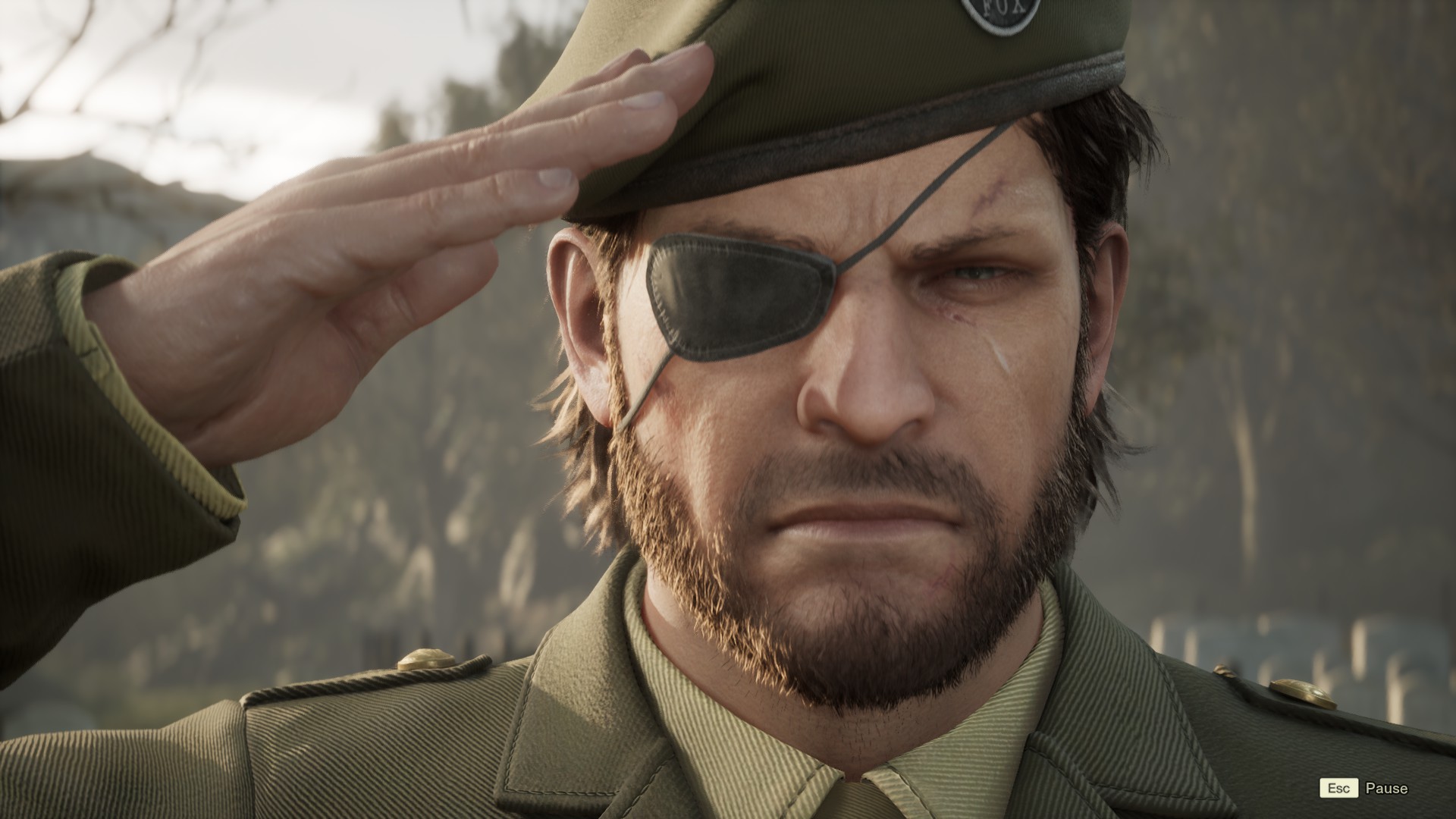
But that raises the question everyone who loves Metal Gear has had for a decade now: what's next? With this and the Master Collection Konami has shown that it can honour the legacy of this great series. But can it make a game that continues that legacy, a game that could surpass Metal Gear?
If nothing else, Delta should remind players of one thing. The Metal Gears were always Hideo Kojima games. But they'd never have been as great as they are without the sum force of Konami's development talent. Somewhere over there, maybe the publisher has finally remembered that.
A gorgeous remake of a true classic that could, and maybe should, have tried to do a tiny bit more.

Rich is a games journalist with 15 years' experience, beginning his career on Edge magazine before working for a wide range of outlets, including Ars Technica, Eurogamer, GamesRadar+, Gamespot, the Guardian, IGN, the New Statesman, Polygon, and Vice. He was the editor of Kotaku UK, the UK arm of Kotaku, for three years before joining PC Gamer. He is the author of a Brief History of Video Games, a full history of the medium, which the Midwest Book Review described as "[a] must-read for serious minded game historians and curious video game connoisseurs alike."
You must confirm your public display name before commenting
Please logout and then login again, you will then be prompted to enter your display name.
